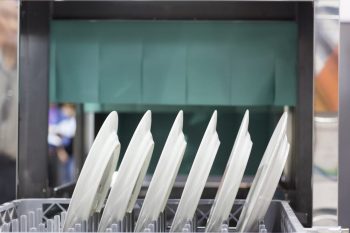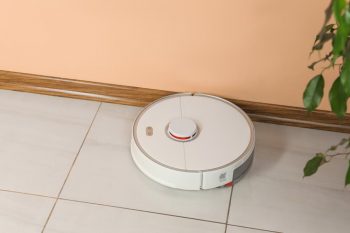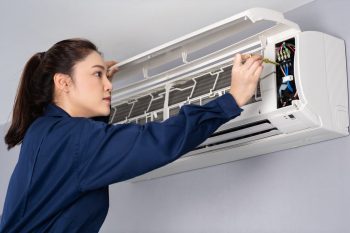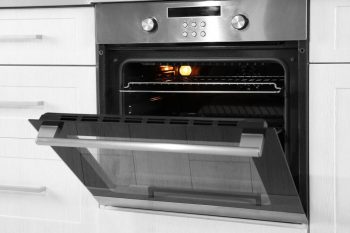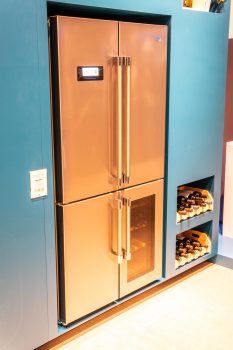
The last thing you need, especially during summer, is your air conditioner overheating and shutting down. It will be a messy, sweaty affair unless you act swiftly.
In all likelihood, one of three common reasons is causing your problem.
- All air conditioning units are prone to overheating.
- Proper maintenance will often help you prevent those possible issues.
- Seek the help of a professional if you need repairs for low refrigerant levels or leaks.
Air conditioners provide cooling comfort at home when the temperature rises or the hot season is fast approaching. While no AC is exempt from overheating or shutting down under scorching conditions, preventive measures are available.
3 Common Reasons a Home A/C Will Overheat and Shut Down
Your home air conditioner could overheat or even shut down after a prolonged or extended operating time during the summer months.
However, checking on a few items can lower the chances of it happening and still achieve the desired cooling performance.
The performance of an air conditioning unit deteriorates over time or from wear and tear. Also, don’t eliminate the possibility of underperformance due to old age.
Worn or damaged parts will struggle to cope with hot weather and could contribute to overheating or shutting down.
Buying a new unit might be more cost-effective than spending on a unit that has outlived its useful economic life.
1. Dirty Air Filter
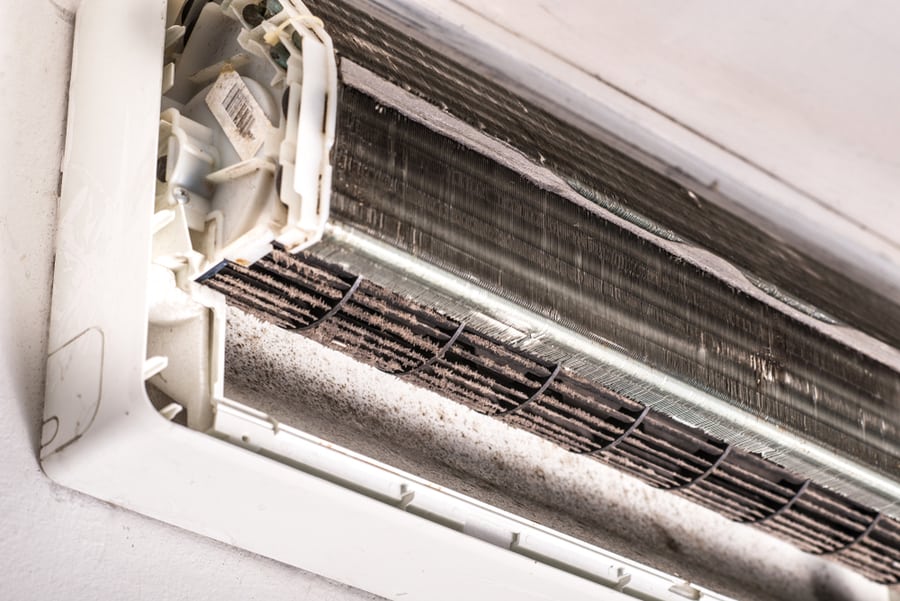
Cleaning your air conditioner air filter is a simple maintenance task that you must take seriously. A dirty or clogged air filter is often the cause of poor cooling, if not overheating, during hot, humid weather.
You would also know it’s very dirty when the outdoor unit emits hot air.
Regular cleaning and changing the air filter every three months should help sustain the cooling efficiency of your AC regardless of weather conditions.
2. Dirty Condenser Coils
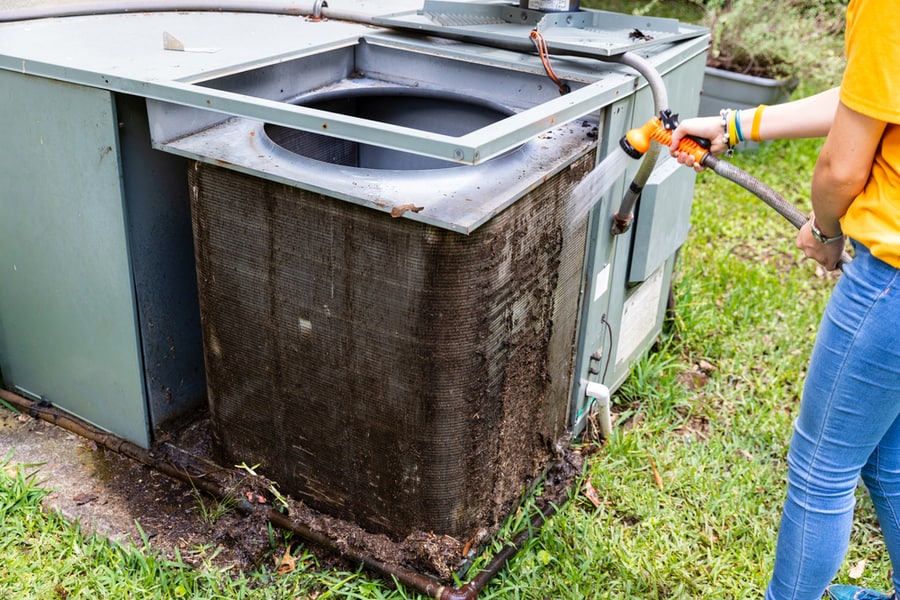
If the condenser coil is dirty, your AC will no longer provide adequate cooling. Like the air filter, the coil needs proper maintenance and upkeep for your unit to function efficiently.
The inside unit dumps the hot liquid refrigerant into the outside unit, and it can’t release the heat if dirt covers the condenser coil.
In such a case, your air conditioner will keep running but eventually overheat if it can’t reach the temperature of the thermostat setting.
You can do the cleaning yourself, but it’s advisable to have a service technician clean the outdoor unit thoroughly, including the fan blades. It would be best if you also had them check for other obstructions.
3. Low Refrigerant Levels
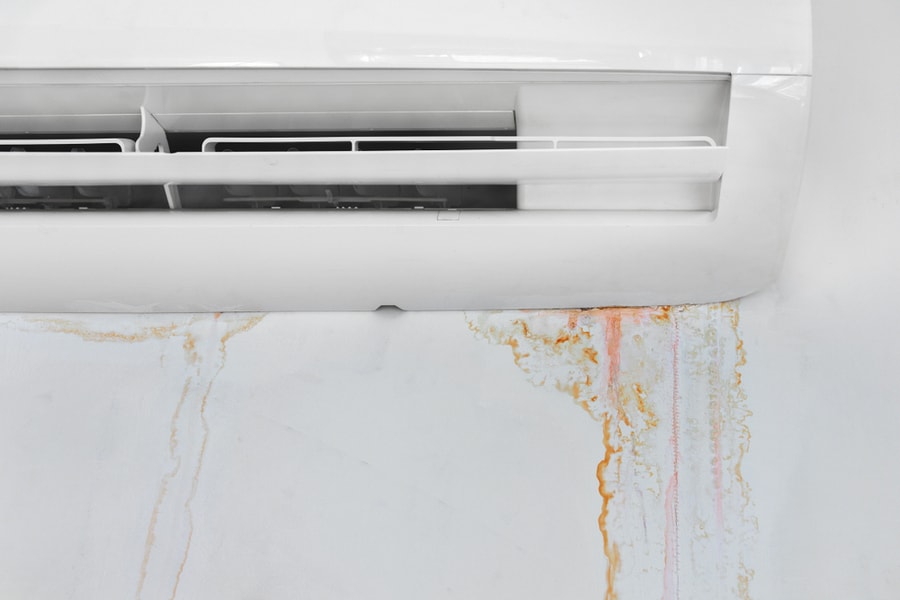
A low refrigerant level is a common culprit when your AC isn’t cooling well. This is because an air conditioning unit needs sufficient refrigerant to reach the set temperature setting and achieve desired cooling performance.
Besides a refrigerant leak somewhere, the issue could stem from your condenser coil outside.
If you suspect refrigerant is your issue, call a service technician to inspect the unit for possible leaks before refilling or recharging.
Takeaway
The overheating and ensuing shutdown of your air conditioning system usually originate from three common reasons.
However, you can reduce the incidence by keeping tabs on AC maintenance and checking in for potential damages before they become full-blown.
Frequently Asked Questions
Will an Air Conditioner Shut Off When It Overheats?
An AC unit usually shuts off when it overheats. However, overworked parts like the compressor, fan motor, or capacitor can cause or trigger overheating and lead to a shutdown.
Manufacturers program their units this way to prevent the possibility of fire.
What Causes Air Conditioner To Keep Shutting Off?
For several reasons, an air conditioning unit can shut off prematurely or keep shutting off.
The common causes are:
- Dirty filters and condenser coils
- Frozen evaporator coils
- Low refrigerant levels
- Faulty thermostat
- Electrical problems
Call a professional if your air conditioning unit persistently shuts off without warning or overheating.

